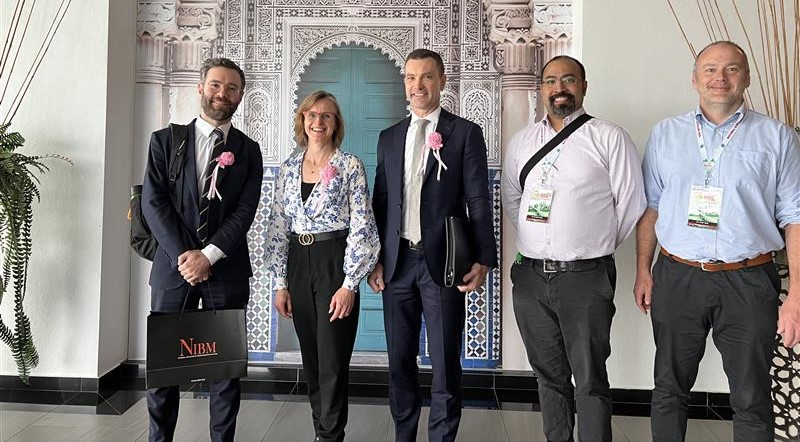Key points
- We’re working with Thai partners to increase the country’s biomedical manufacturing capabilities. This includes manufacturing two key drugs to kickstart production: HIV antiretrovirals and cancer therapeutics.
- We're supporting the production of vaccines in Malaysia by providing tools and expertise.
- By building local vaccine and medicine manufacturing capabilities, Thailand and Malaysia are securing their equitable access to life-saving treatments.
Scientists from our Biomedical Manufacturing Program are partnering with Thailand and Malaysia to enhance their local vaccine and medicine manufacturing capabilities. This initiative aims to improve access to affordable, high-quality medications and strengthen health systems across the region.
Vaccines and medicines are the backbone of public health, but not all countries can produce them locally. During the COVID-19 pandemic, Australia provided vital vaccine support for its Pacific and Southeast Asian neighbours. Now, as the world moves forward, we are collaborating with Thailand and Malaysia to develop their capacity for local vaccine and medicine manufacturing.
Working to improve biomedical manufacturing
In Thailand, we’re working with government organisations to increase the country’s biomedical manufacturing capabilities. This includes manufacturing two key drugs to kickstart production: HIV antiretrovirals and cancer therapeutics.
Based on Thailand’s public health needs, these exemplar drugs will form the basis for developing processes to produce a broader range of treatments over time. Our scientists, with their expertise in modern biological and chemical processing techniques such as suspension cell-based protein production and continuous-flow chemistry, will share this knowledge with Thai colleagues.
HIV in Thailand
HIV remains a significant public health concern in Thailand. While the country has made substantial progress in stemming the spread of the disease, there are still gaps in health care access. Particularly among gay men, the transgender community, sex workers and intravenous drug users.
- Approximately 480,000 people were living with HIV in Thailand in 2018, around 1 per cent of the population were aged 18-49.
- 95-95-95 is the UN’s global HIV target: 95 per cent of people knowing their HIV status, 95 per cent of those people on treatment, and 95 per cent achieving viral suppression. Thailand is at 90-81-79.
- Since 2010, new HIV infections have declined by 45 per cent, but 9,230 new cases were reported in 2022.
- HIV-related deaths have dropped by 65 per cent, yet 10,972 deaths were reported in 2022.
Cancer in Thailand
Cancer treatment in Thailand has been widely accessible since the 2002 introduction of universal health coverage. However, this only covers a limited range of drugs. Importing advanced therapies is costly, but locally manufacturing generic cancer biotherapeutics will provide equitable access to life-saving treatments for Thailand and the region.
- 180,000+ new cases reported in 2022, with a projected 50 per cent rise by 2045.
- 441,900 cases required ongoing treatment for over 5 years in 2022.
- 118,829 cancer deaths occurred in 2022.
- The most prevalent cancers: liver (15.2 per cent), lung (12.8 per cent), breast (11.8 per cent), and colorectum (11 per cent).
Building a future of health independence
Both projects will emphasise hands-on training, workshops and process development both in Thailand and at our National Vaccine and Therapeutics Laboratory (NVTL) in Melbourne. These efforts will enable Thai scientists to train colleagues at home, fostering greater health independence for the region.
When this work is complete, Thailand will gain more than new manufacturing processes – it will establish a framework to integrate these methods into its biotech and manufacturing industries, delivering:
- Better access to affordable, high-quality medicines for the Thai population.
- Stronger health systems to handle future emergencies.
- Opportunities for growth in the Thai biotech industry.
Producing complex, high-quality vaccines
Malaysia currently imports all its vaccines but has set ambitious goals for its healthcare future. The National Vaccine Development Roadmap focuses on producing vaccines locally, including Halal-certified options, to meet national and regional needs.
As part of this effort, the National Institutes of Biotechnology Malaysia (NIBM) is establishing a pilot-scale vaccine manufacturing facility at the Malaysia Genome and Vaccine Institute (MGVI). Following the research agreement signing on 19 November, we will support this transformation by providing tools and expertise to progress vaccines from research to production.
Malaysian scientists at MGVI will receive hands-on training to advance vaccine candidates through quality control standards and into clinical trials. This partnership aims to empower Malaysia to produce complex, high-quality vaccines, strengthening its health system and preparedness for future outbreaks.

Building local vaccine and manufacturing capabilities
These partnerships show the power of science to improve lives. By building local vaccine and medicine manufacturing capabilities, Thailand and Malaysia are securing their equitable access to life-saving treatments.
This work is funded through the Australian Government’s Partnerships for a Healthy Region initiative, supporting resilient and equitable health systems to reduce disease risks and respond effectively to health emergencies.
